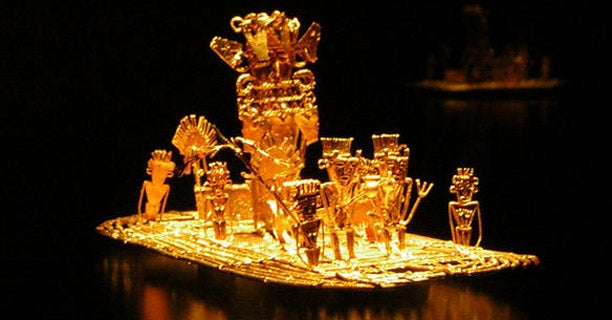No, I’m not talking about the smooth and delicious Guyanese rum – though the taste is legendary.
At the time of early Spanish voyages to the West Indies, many adventurers believed in a mythical figure, El Dorado, the golden man, whose kingdom was believed to be so well-endowed with gold as the great Inca and Mayan civilizations in Mexico and Peru. Discovery – or more explicitly, conquering – of the golden kingdom would bring the Spanish empire immeasurable wealth and power. These men travelled throughout all parts of the Indies, but all inevitably ended up empty handed before opting to pursue other more lucrative ventures.
Obviously times have changed since those days, but with economic growth stagnant in the Caribbean for the past four decades, talk in some countries of ascension to “developed country status” [1] seems to take on similar mythical properties to El Dorado.
So is the concept of a Caribbean country achieving developed status the new El Dorado or is it actually attainable? After all, of the six countries in the IDB Caribbean Country Department, three are classified by the World Bank as high income (Barbados, Bahamas, and Trinidad & Tobago), two are classified as upper middle income (Jamaica and Suriname), and one as lower middle income (Guyana). So… not too far to go… right?
Well, like any decently-trained economic development professional, the answer to both (and all) questions is… it depends.
By now you would have read the CaribEconomics pieces such as “Does Size Matter? Yes, if you are Caribbean!” and “Don’t talk to me about Debt. Talk to me about Growth”. Indeed, these and other analytical works show that there are available options for our countries to reposition themselves on a sustainable growth path. However, given our prolonged economic stagnation, advancement requires structural change. In turn, change requires not just compliance or siding with various other tried methods, but buy-in and internalization of the country’s vision as the main agent. Internalization is what differentiates means from ends; intention from ambivalence; pro-action from complacency; reality from myth.
In sum, only time will determine whether our efforts to change our trajectory were in vain, but unlike the Spanish adventurers, inaction is the only surefire way to guarantee our goals amount o nothing more than a mythical paradise.
A developed country is a sovereign state that has a highly developed economy and advanced technological infrastructure relative to other nations. Most commonly, the criteria for evaluating the degree of economic development are gross domestic product (GDP), the per capita income, level of industrialization, amount of widespread infrastructure and general standard of living.


Leave a Reply